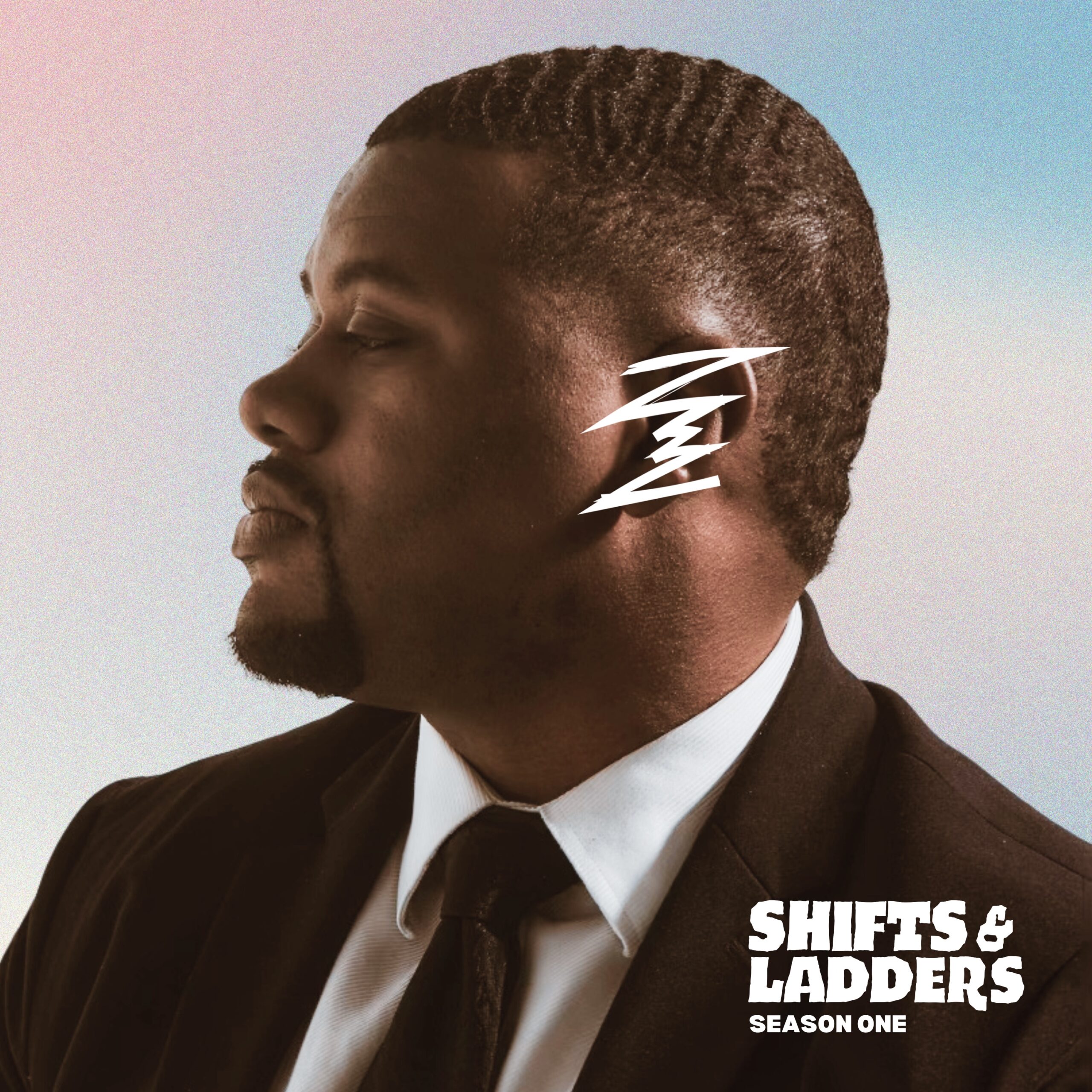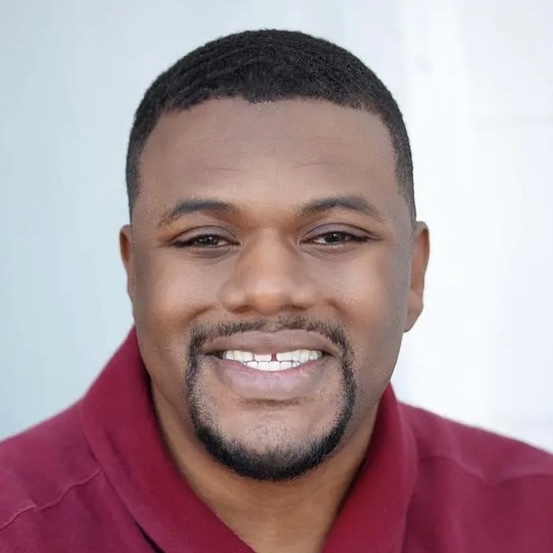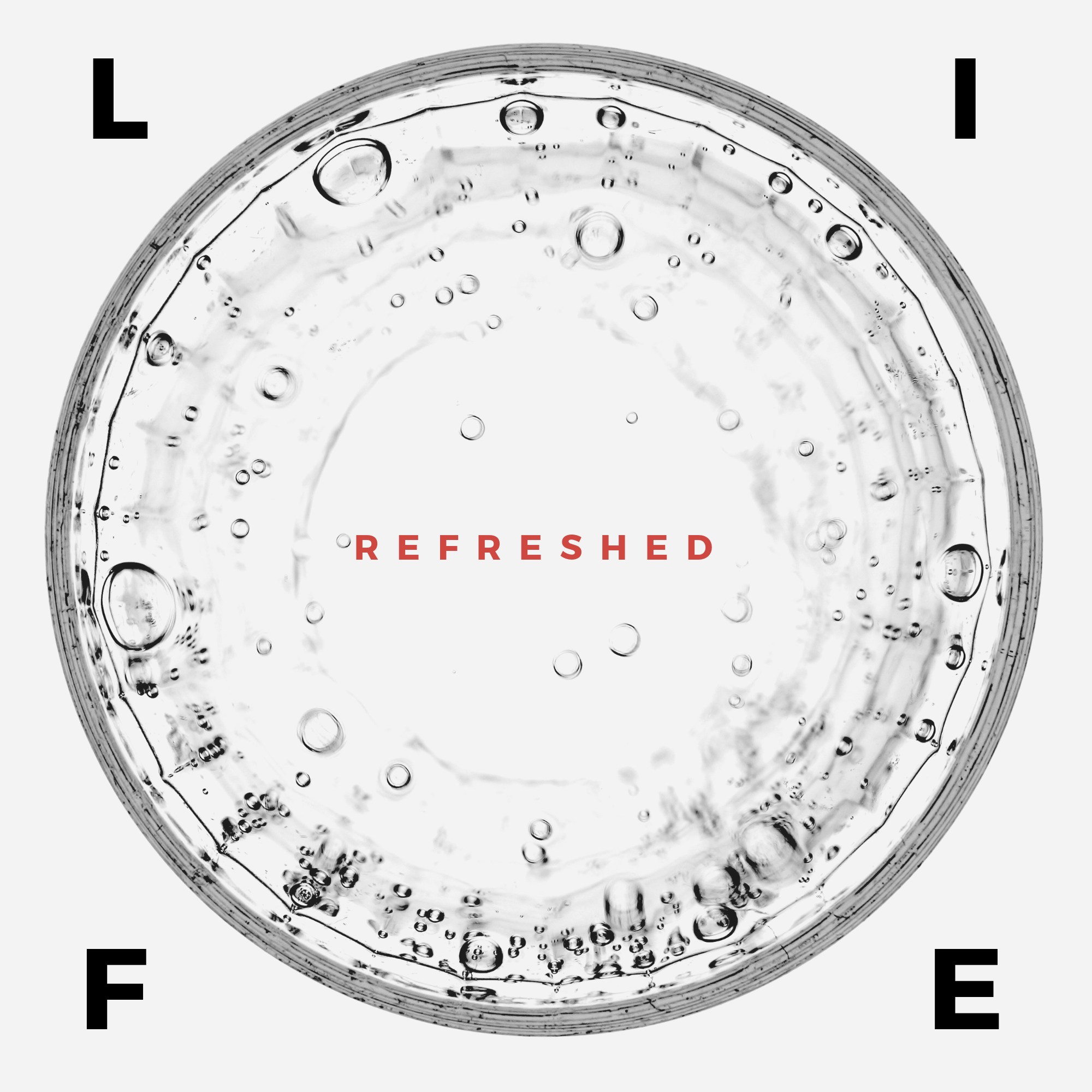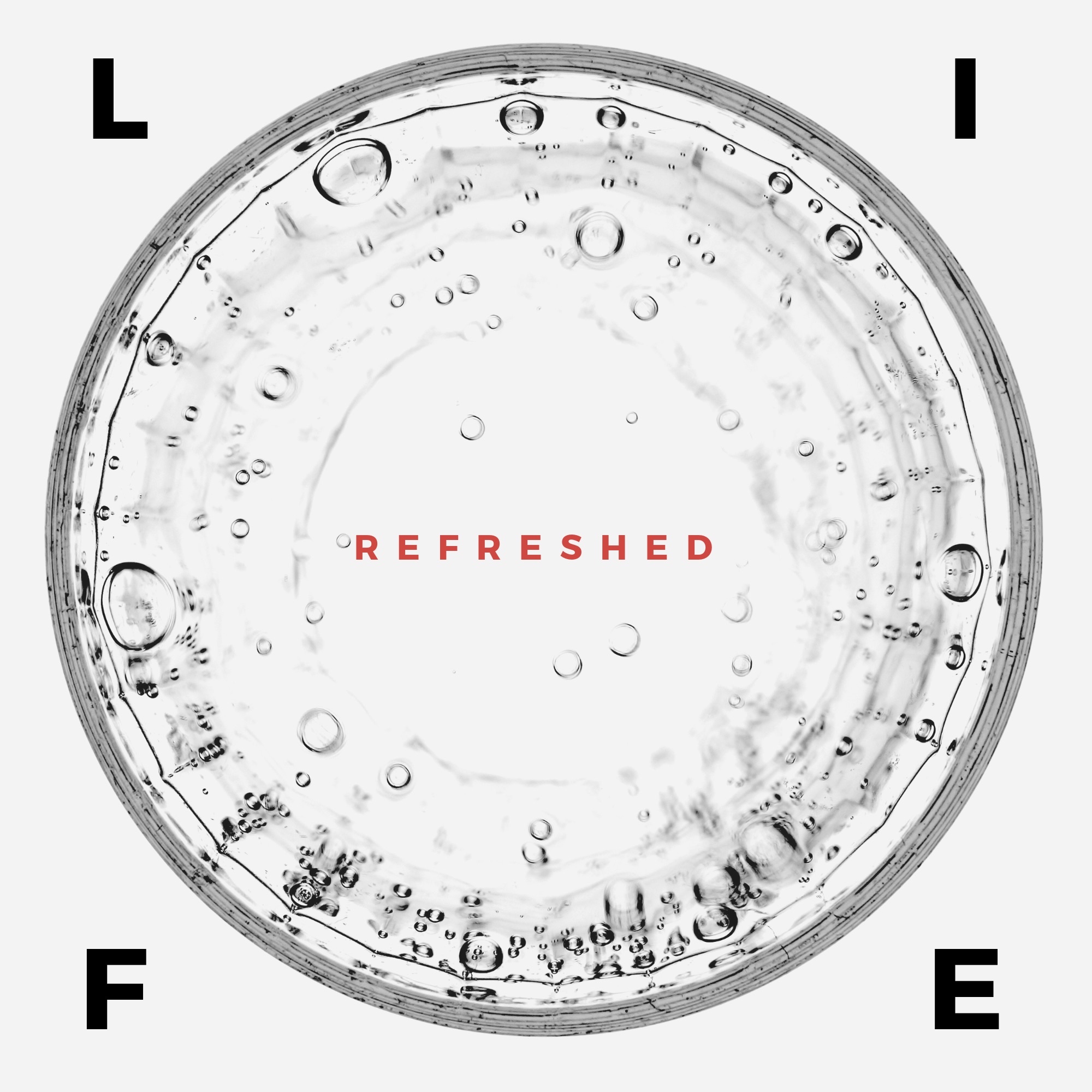Episode Transcript
[00:00:00] Have you ever noticed Jesus never said, love your neighbor more? He said, love your neighbor as yourself.
[00:00:08] That means your ability to love people is really capped by your patience and your willingness to actually perceive how you love yourself. You can't love people, right, if you don't love yourself. Right?
[00:00:22] And honestly, I feel like most of us talk about love as a thing that we just have versus it being something that we do.
[00:00:35] Love is an action word. So what all comes with that? And also, most of us are trying to like love.
[00:00:48] We don't know how to love because we haven't received love. We have some distorted thing of what we call love, whether we were showered with gifts or all that kind of stuff that you might say love, love looks like this, but really it's not the kind of perfect love that the Bible says, cast out all fear.
[00:01:09] So sometimes when we show up in relationships or in leadership or even in ministry, empty and hoping that someone will fill us so that we can actually be able to love people the way we know we should love them.
[00:01:23] But we only love people out of overflow. So if you haven't seen yourself the way God sees you, you can't love him the way he loves you. And actually what we do is we protect ourselves from the pain and the people that we care about and we call it love.
[00:01:42] We're going to get into this. This is Shifts and Ladders. Welcome. I'm Ryan Robinson, I'm your host. I've been here for a minute, but I'm glad you are here.
[00:01:52] I want to share a bit of a story here.
[00:01:57] And this is more of a recent story, so I can just. I'm gonna be transparent with you.
[00:02:03] I think sometimes, at least for me in the past, I have not been the best person when it comes to loving myself. In fact, I'm actually a pretty hard person. Hard on myself. And what makes it really challenging is I call being hard on myself having a high standard of excellence. So I'm usually a person who gives their best in everything as much as I can. When I have a clear sight of it. I want to make sure that people, whenever they experience anything I touch or work with, to have a high level of expectation and excellence for what I do. And sometimes what that does is it actually puts me in a people pleasing space, which really sucks because at that point you really don't know what their standard is. So you actually submit your own standard of excellence for their standard of acceptance, which really sucks.
[00:02:56] So I recently come to a point in my life now where I have to Or I'm learning to have self compassion for myself.
[00:03:06] And that is something we don't hear about. We talk about self love, but what we don't talk about is self compassion.
[00:03:13] And compassion is embracing all of you without partitioning and cutting off parts of you that you don't think are acceptable.
[00:03:23] So this actually brought me to Matthew, chapter 22, verses 37 through 40 particularly. It's actually 34 through 40.
[00:03:31] And I'm gonna pull up the scripture, have the actual word of God. I don't have a digital one today, but in the book of Matthew, it really gets to a point where Jesus is in the space with Pharisees. And this is. I'm gonna read it so we have context. But I will bring in the anchor for what we're actually talking about here. Verse 34 says this. Chapter 22, Matthew 22, starting at verse 34 says this. When the Pharisees heard that he silenced the Sadducees, they came together.
[00:04:07] One of them, who was a lawyer out of all people, tested him by asking him, teacher, which is the greatest commandment in the law? He's trying to trick him, y'. All.
[00:04:19] Jesus said to him, you shall love the Lord your God with all of your heart, all of your soul, and with all of your mind. This is the first and great commandment. And the second is like it. Here, catch it. You shall love your neighbor as yourself. On these two commandments hang all the law and the prophets.
[00:04:40] Okay? So that's one of several situations where Jesus is getting drilled by Sadducees and Pharisees. Sadducees and Pharisees, religiosity brought into their line of language and way. They showed up because they thought the more that they knew, the more holy they were. So Jesus is like, I'm going to make this simple. I'm going to give you two things.
[00:05:02] Love the Lord your God, love your heart, all your soul, all your mind, and love your neighbor as yourself. Now, the last part as yourself.
[00:05:12] I'm going to correct you, right? I'm going to say this right now. It's not vanity is actually alignment.
[00:05:18] So when you hear this, think of it as a complete circle, okay? When Jesus is saying that, he isn't saying to worship yourself.
[00:05:27] He's saying, see yourself the way God sees you or see yourself rightly. And this is the thing, because you don't believe you're loved. We love conditional.
[00:05:39] Now, the thing is, if you love God and God and you've been made in the image and likeness of God, you're An image bearer of God. Therefore, if you love God, you have to love yourself because God loved you first and because he loved you. And God is love. If you recognize that you're an image bearer of the God who made you, who is encompassed and contained and has an unending depth of love for you, you will be able to know how to love. But we don't know how to do that because love in our world is conditional.
[00:06:19] I love you if this. I love you when you do that.
[00:06:23] And we use love all in different kind of words, that's a whole nother sermon, not even sermon teaching really.
[00:06:30] But if you don't believe you're forgiven, you will withhold forgiveness.
[00:06:36] If you don't feel like you were loved, you will withhold love.
[00:06:41] If you don't feel that you are blessed, you won't pass blessings. If you don't think you're wealthy or rich, you won't be giving. You have to understand that there's a. There's an identity that gets established first before you can give what you believe you have. There's a saying, I know who the author is or who said it before says, you can't give water out of an empty cup.
[00:07:05] You can't give love if you haven't been filled with love. So we give out of our overflow, but most of our time, most of the time we actually give out of a deficit.
[00:07:20] So we give what we don't have and we're seeking and searching for something to fill that up.
[00:07:27] And ladies and gentlemen, I'm telling you as a man who has gone through what it's like to not be a whole human being showing up differently in different places because you're looking for love in all of the wrong places.
[00:07:40] You can't give what you haven't received.
[00:07:43] This is not a self help alignment. Find it in a book.
[00:07:49] This is bible. But it's also spiritual architecture. If you don't get this right foundationally, you will not be able to build, do and have the things that God says you need to have or sorry, you have the opportunity to have. Okay, I want to correct that. So I spoke about being in misalignment and that's like, that's real talk.
[00:08:14] When you live out of alignment, you're anxious, you're nervous, you're scared, you can't fake it. You end up finding out that whatever you have, whether it's frustration, irritation, annoyance, you know you can't fake it for long. If you have, you don't really love yourself. Well, you'll take it out on other people. We've taken out on kids, we've taken out on coworkers. We have taken it out on peers, we've taken out on teammates. It just leaks out in your tone, your leadership, your marriage, your parenting, even your social media posts.
[00:08:51] People that don't even know you, they might say something that, like, triggers you because you're so annoyed by them. You might be annoyed by this, and you might send a comment that may not be nice. I don't know where you are, and in fact, you don't even know me. But whatever I said put you in a place of pulling out. Like, what do you mean?
[00:09:10] That's annoying. That's where hate commentary comes from. Have you ever seen someone who is, like, critical and always, like, picking people apart? That's not discernment. That's not criticism or effective, constructive criticism. It's actually protection.
[00:09:27] Because what ends up happening is you project. If you're projecting frustration and hate in your heart, you cannot help but create the kind of environment and situations that get people to hate you back. So watch your words, watch how you are responding to people. Watch how you are talking to folks, your kids, your posts, the things that make you respond or hit you in a different place that get an emotional response out of you because honestly, it might be something that you need to deal with that you're not willing to.
[00:10:03] And it's just leaking out.
[00:10:05] Your face is showing. So, you know, real talk, you're out of alignment. So I'll say this. There's some examples of this, and I'm gonna keep it moving. Insecure leaders, control. Okay? So you. You see that happening. Wounded people manipulate so that they have outcomes that are in their favor. Performers recovering 1 hide behind success so when they don't have it, they feel exposed.
[00:10:31] And all of that comes back to the root.
[00:10:35] We don't see ourselves through God's eyes.
[00:10:39] Okay? So I just want us to kind of circle around that for a minute. And a lot of times it's because we have so much stuff around us that we were just cluttered, have a cluttered perspective of things. But here's the thing that I want to kind of talk about in a framework here in transformation, so we know all this stuff that's wrong. How do we get ourselves to love from overflow? Okay, the first thing we've got to do is we got to receive God's love for ourselves.
[00:11:06] We got to sit with the truth, with who we are in God.
[00:11:12] We are fearfully and wonderfully made.
[00:11:15] We are the apple of his eye. These are all in the Bible, y'. All.
[00:11:19] You can't build peace if you haven't received it for yourself. So if you don't understand where you've come from, where you've been loved, how you've been cared for, how God has woven you, how God is still providing for you, if you don't know how to receive anything from God, you are actually telling God that what he has for you is not enough. Ouch, that hurt me. That hit me. Most of the time we like to give, but we don't like to receive. Hence why most of us are giving love but not receiving love. We think giving gives us the opportunity because that's what we're told to do. But honor, honestly, the most safe thing you can do with God is learn to receive from him.
[00:12:05] People are great gift givers, but they do not know how to receive a good gift themselves.
[00:12:11] I'm one of them. People don't even know how to receive a compliment. They get all shook up, nervous, like, what do I do with it?
[00:12:19] That's what. But you have to learn how to receive that. Because honestly, when you receive, it actually blesses the other person. Because what you're telling them is what you gave me is great, good enough, that it fills me up, but when you reject it, it's like, nah, that's not even good enough for me. My granddaddy, God rest his soul, I remember, told me one time when I was young, he gave me $2 bills. A $2 bill. Google it. Because they had them. He told me one time, he said, I said, I said, granddaddy, I don't need it. I have a love. He's like, oh, no. He said, you keep that.
[00:12:51] He said, don't block anybody's blessing. I'm like, I thought I was getting blessed here. No, it's actually somebody Bible says is more blessed to give than it is to receive. So if you block somebody's blessing to give by not receiving, you're cutting off a blessing for yourself.
[00:13:10] Okay, so anyway, that was just one. I got three, I promise. Number two, reframe your self talk. If I heard your conversation about you in your head, would I think that you were a kind person? Probably not me. A person who's been super critical and learning self compassion.
[00:13:26] I heard to myself, I would tell myself, that's not good enough, that's not good enough. It has to be better. What's wrong with it? And that's the first thing I've done is like, okay, hey, you messed up. That's cool. No. What's wrong?
[00:13:40] Nothing's wrong. We just did something here. Why are you so hard on yourself? People would tell me that, I'm like, it's not right, they say, but it's okay, we'll fix it.
[00:13:52] That voice is not the father's voice. That's the enemy's voice.
[00:13:55] Puts you on a hamster wheel to say what you're doing is not good enough. So what I am encouraging you is to start aligning your inner dialogue with the divine truth that God says that you are more than enough. You are more than conquerors than in Christ. You are more than a conqueror in Christ Jesus.
[00:14:17] He says so many things affirming about his children that we don't even go back to the Word and say, and I'll be honest with you, I know it. I've learned the Bible, I'm still learning the Bible. And the word of God, it keeps revealing itself to me every single day. And some of the things that I need for self talk, I don't do. And I'm telling you all this just transparently because I know what it's like to not know how to love. Well, okay, now once you've got the reframing the self talk and you're getting yourself better aligning your words with what God says about you, then you can reflect forward. How will you live forward from the overflow? How are you going to love people?
[00:15:02] How are you going to love them? So it's not exhausting, but it's an automatic thing that you do. You're not performing love, but you are becoming it and embodying and being a pass through for what the love of Jesus Christ looks like in the earth. I know it's super hard to do. I know it's challenging. I know you don't want to love that person. I know that person said some dumb stuff. I know they had said some hurtful things. I know they've done some hurtful things to you. But honestly, at the end of the day, does the gospel say love your neighbor? He didn't say be friends.
[00:15:36] The word doesn't say be buddy. Buddy. It means love. Do I want the best for you? I don't want any harm to come to you. I'm going to have a boundary if you've hurt me. But I want the best for you because I love you as a fellow image bearer of God, I love you. That is what we need to get to.
[00:15:56] And in fact, because we have all this, the racism, sexism, all of the isms that actually divide us. It is something that keeps us from actually seeing the fact that you, me, and everyone around us are image bearers of God. And if there's an opportunity to say that our image is a little bit better than yours, it causes us to be able to say, you are not a full image of God, therefore I can degrade you. And that is not in his word, and that is not God's will. We have to remove the noise so that God's voice becomes clearer again, period. When things around us and our soul gets cluttered, the definition of love gets distorted depending on how we want to define it. So there's a couple things I want to do, and I'm done talking. I'm. I'm done. I'm done. But there's a couple things I want. I'm on this journey and. And everybody has some level of proclivity or challenge with wholeness, and a lot of them are areas that you haven't healed. Yeah.
[00:17:04] I have a process that I'm going through now called the integration. Integrated method. Integration method, excuse me. And it's based on biblical principles. Jesus is the only whole human being that we have example of in the scripture. And he's an example of what it looks like to find wholeness in God and love for yourself.
[00:17:26] Wholeness in God automatically contributes to understanding who you are fashioned to be in Jesus, in God himself. Excuse me. So I have something on ryanrobinson.com it's called declutter your soul. It's a free e book for you to download to help at least you audit. And audit sounds like a terrible word, but. Filter. There we go. Filter what is in your life that is keeping you from the best things in your life. And I hope that it blesses you again. It's free 99. So feel free to. To do what you need to do.
[00:18:01] But you can't pour out love if you don't know where it originally comes from. And then you can't even have deep relationships if you reject yourself first.
[00:18:15] So if this has blessed you, share this with somebody.
[00:18:22] Share it with someone who may be struggling with themselves and who they've been made by what they've been told.
[00:18:32] I guarantee what they've been told isn't. Isn't the truth.
[00:18:36] God is the truth. And what he says goes.
[00:18:39] It's what you choose to believe. So we're on YouTube if you're watching Apple Podcasts, Spotify.
[00:18:49] I pray that it blesses you today that you make this shift and elevate higher through the ladder. Of love.
[00:18:58] Until next time. We'll catch you in the next one.
[00:19:01] Peace.




